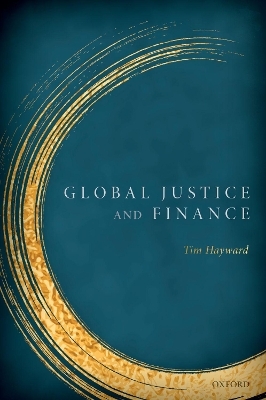
Global Justice & Finance
Oxford University Press (Verlag)
978-0-19-286275-4 (ISBN)
Can global justice be promoted by distributing money more equitably? Could even relatively small financial sacrifices by the affluent work, through benign leverage, to achieve that goal? Global Justice and Finance casts new light on such questions by considering what is presupposed about finance. Redistributive proposals assume money to be a reliable measure, store of value, and medium of exchange. Yet maintaining stable interest, inflation, and exchange rates in a dynamic capitalist economy is a considerable achievement involving a complex financial system. Such global coordination could, if so directed, contribute immensely to humanity's betterment, yet under the direction of a profit seeking elite it leaves a majority disempowered, impoverished, and indebted. To pay debts, ever more desperate measures to wrest value from the world's natural resources increase ecological pressures to harmful extremes, and those pressures do not stop short of driving wars. The profit seeking economy is held in place by the complex legal arrangements that constitute finance. Globally, there has developed, unannounced and unaccountably, what amounts to a privatised constitution - binding agreements that transcend sovereign jurisdictions. Hopes of redirecting the financial assets created within this system, by means of modest reforms, towards objectives of social justice and ecological sustainability may prove illusory. To achieve such objectives arguably requires the constitution of a global normative order guided by public and political decision-making. The achievement of a publicly accountable constitutional order that is superordinate to the financial system might be regarded as a revolutionary transformation.
Tim Hayward is Professor of Environmental Political Theory at the University of Edinburgh. After completing a doctorate on human rights at the University of Sussex, he held positions in Italy and Wales before settling at the University of Edinburgh. Having written extensively on how environmental values might be integrated into social and political theory, his more recent work examines obstacles to political progress. The present study of the challenges presented by financialized capitalism has led to exploratory research into how populations are manipulated by propaganda into accepting policies that are not in their own best interests or those of justice, sustainability or peace.
1: Introduction
2: Money for Justice?
3: The Good of Finance and the Critique of Financialization
4: Financialization and the 'Real Economy': An Ecological Perspective
5: Can Giving Money End Severe Poverty?
6: Can Benign Leverage be Relied on to Make the World More Just?
7: Can Money Transfers Serve to Offset Ecological Harms?
8: What is the Good of Money?
9: The Monetary Constraints on Tax Justice
10: Constituting Finance as a Global Public Good: the scope of the challenge
11: Finance, War, and 'Humanitarian Intervention'
12: Conclusion
Bibliography
Index
| Erscheinungsdatum | 19.04.2022 |
|---|---|
| Verlagsort | Oxford |
| Sprache | englisch |
| Maße | 156 x 235 mm |
| Gewicht | 368 g |
| Themenwelt | Sozialwissenschaften ► Politik / Verwaltung ► Europäische / Internationale Politik |
| Sozialwissenschaften ► Politik / Verwaltung ► Politische Theorie | |
| Wirtschaft ► Betriebswirtschaft / Management ► Finanzierung | |
| ISBN-10 | 0-19-286275-8 / 0192862758 |
| ISBN-13 | 978-0-19-286275-4 / 9780192862754 |
| Zustand | Neuware |
| Informationen gemäß Produktsicherheitsverordnung (GPSR) | |
| Haben Sie eine Frage zum Produkt? |
aus dem Bereich


